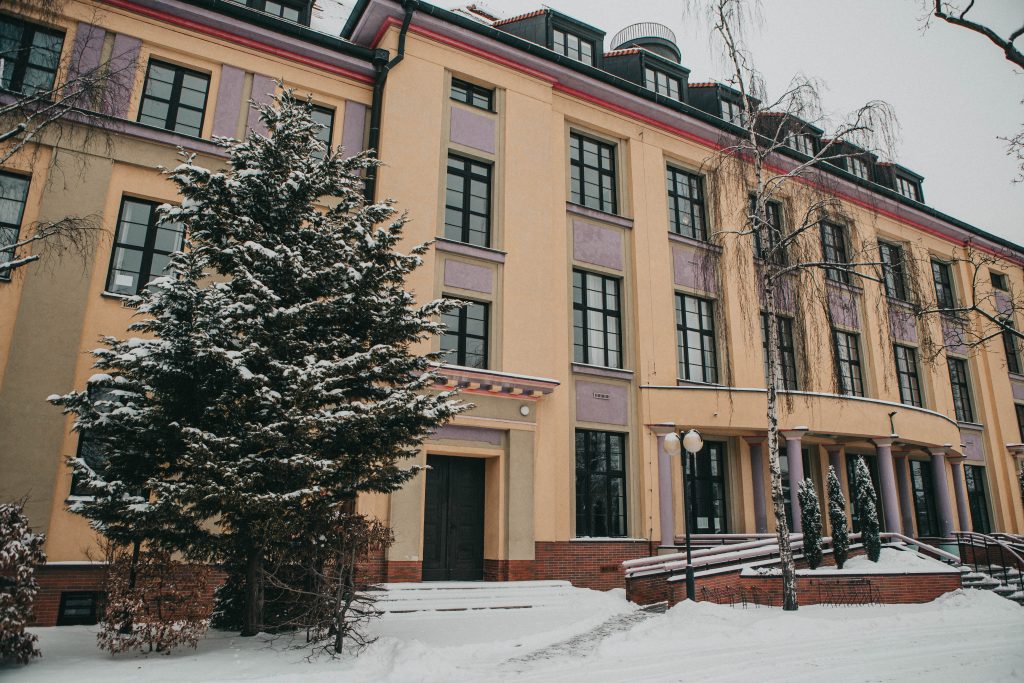
About us
The Centre for Regional and Borderlands Studies (CRBS) was established at the Institute of Sociology at the University of Wrocław in cooperation with the Willy Brandt Centre for German and European Studies in April 2015. The aim of the CRBS is to develop a national and international research network that will be focused on regional and borderland studies. We will organise consultations, workshops, research projects, studying visits and information activities in order to promote new research fields and to consolidate the borderland scholars in Poland, and abroad. As such, the Centre intends to provide a platform for scientists and representatives of local authorities and NGOs, where they can monitor selected processes and communities in the region, as well as in the border areas, and gather and disseminate information about research projects, publications, analyses and conferences about regional and borderland studies.
CRBS is member of the Border and Regional Studies CEEPUS network.
Our goals
- to develop new research fields and to facilitate the debate on theoretical and methodological approaches to regional and borderland studies
- to shape the framework and research interests of the sociology of borderlands studies
- to carry out research projects, conferences, workshops and to release publications in regional and borderlands studies
- to initiate and coordinate cooperation with scientific institutions, local governments and non-governmental institutions on issues of regional and cross-border cooperation
- to strengthen the international scientific cooperation by consolidating Polish scholars and establishing an international network for regional and borderland studies
- to foster applied research of the Centre via the cooperation with the public sector.
Research areas
In its research, the CRBS focuses on daily practices and local narratives on borders (analysis of borders shaped by historical memory and local identity, geopolitics of memory, social trust, symbolical boundaries); Europeanisation processes in borderland regions (critical evaluation of Europeanisation, analysis of EU regional policy, political discourse and media images of borders); the demarcation and the re-establishment of borders as a process of social inclusion and exclusion (classification of social groups based on the use of ethnic, religious and economic categories; construction of social boundaries as a form of social ordering); social consequences of demarcating, transcending and re-establishing of national borders; border areas as transit zones and space for hybridisation; multiculturalism in borderlands; human rights issues and border crossing by illegal migrants; security of borders, and privacy and personal data protection issues; target regions and migration balance; mixed marriages, social conflicts and their actors in border regions; crime and its nature in borderlands, and social aspects of Polish neighbourhoods.
Founding institutions
Taking the cross-border cooperation and regional studies as a field of research and activity of the CRBS, we refer back to the research tradition of the founding institutions – the Institute of Sociology and the Willy Brandt Centre.
In 1997, the Borderland Department was established at the Institute of Sociology. From the beginning it has shaped Polish borderland studies by carrying out research projects, organising regular conferences, “Polish Borderland in Transition” and “Neighbourhood in the Third Republic”, and editing numerous monographic scientific publications in cooperation with the researchers from all major academic centres in Poland and abroad, mainly from Germany and the Czech Republic. The Departmental staff conducted a survey in most of the Polish borderlands, and a significant number of dissertations and a large number of masters’ theses, completed in the Institute of Sociology, were applied to existing border issues.
The Willy Brandt Centre (WBC) for German and European Studies was founded by the German Academic Exchange Service (Deutscher Akademischer Austauschdienst – DAAD) and the University of Wroclaw as an interfaculty and interdisciplinary institution in 2002. The WBC belongs to the worldwide network of centres supported by the DAAD. The main goal of the WBC is to initiate, organise and disseminate studies on German and European issues and the Polish-German relations. The research results are presented at conferences, workshops, as well as in numerous scientific papers appearing in a series of the WBC publications. In 2014 the WBC received the Award from the City of Wrocław for the
